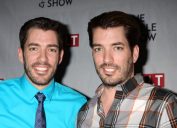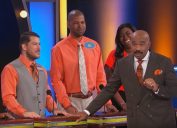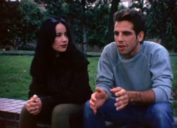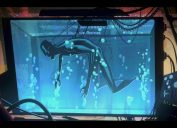The 27 Best South Park Episodes of All Time
These episodes are hilarious no matter how many times you've watched them.
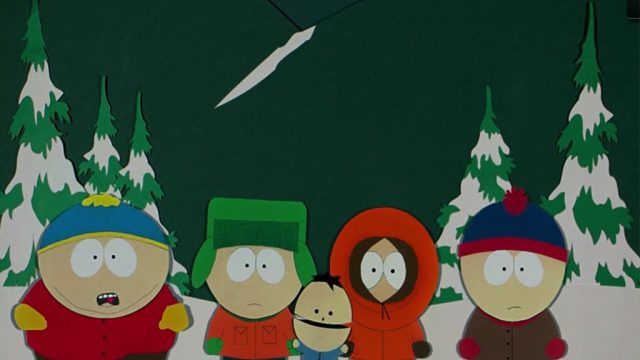
South Park creators Trey Parker and Matt Stone have been serving up their signature brand of dark, ironic humor since 1997—and viewers haven't tired of it yet. The pop-culture phenomenon is still going strong, having launched media firestorms and even a Broadway musical and full-length feature films.
The best South Park episodes of all time have sparked controversy, cultural critique, and a lot of laughs. Here's our rundown of the greatest, most offbeat episodes of South Park across its decade-long run.
"Mr. Hankey, the Christmas Poo" (Season 1, Episode 10)
South Park's first Christmas episode was also the one that put it on the map. Mr. Hankey, an extremely unlikely holiday hero in the form of a singing lump of bathroom waste, came to life during the show's first season in 1997. Originally dreamed up as a reference to an inside joke from Trey Parker's childhood, Mr. Hankey became an iconic cultural reference and one of the show's most popular characters. He has appeared on the show many times since his first classic appearance.
"Tweek vs. Craig" (Season 3, Episode 5)
South Park's long run has allowed the shows' creators to develop long-running jokes, familiar themes, and narrative arcs that involve long-term character development. The rivalry between side characters Tweek and Craig in the third season's "Tweek vs. Craig" is a great example, as it launched a fight between the two. In season 19's "Tweek x Craig," however, the pair makes a very different kind of connection, developing a romantic relationship.
"Marjorine" (Season 9, Episode 9)
Some of the best South Park episodes are centered around side characters. Quirky, manic Butters Stotch, with his strict parents and naive worldview, has become a fan favorite over the years. In "Marjorine," Butters is pushed (as usual) by his ragtag group of friends into faking his own death and dressing up as a girl to infiltrate the girls' sleepover. Memorable moments include Cartman's turn as "Marjorine's mom" and Butters' parents' attempts to resurrect their son using a nearby Indian burial ground.
"All About Mormons" (Season 7, Episode 12)
The South Park creators have never shied away from religious and political commentary. Over the years, they've confronted the absurdity of many mainstream beliefs and taken jabs at quirky cults and oddball subcultures. "All About Mormons" is one of the show's most well-known religiously themed episodes, especially since it partially inspired the creators' Broadway musical, The Book of Mormon. The episode delves into the history of the Church of Latter-Day Saints and the figure of Joseph Smith, resulting in some hilarious musical moments and top-notch spiritual satire.
"Goth Kids 3: Dawn of the Posers" (Season 17, Episode 4)
Many of the best South Park episodes of all time delve into the intricacies of youth culture. The "Goth Kids" series of episodes does just that, skewering the emo and goth cultures that were especially popular among kids and teens during the '90s and early-to-mid 2000s. "Goth Kids 3: Dawn of the Posers" sees the dark-clad cast of characters that comprise South Park's "goth" world in an all-out brawl with "emo" and "vampire" kids. Extra points to this episode for some hilarious takes on Edgar Allen Poe and really, really bad emo-kid poetry.
"Crippled Summer" (Season 14, Episode 7)
"Crippled Summer" deserves a spot on the best-of list because of Parker's and Stone's deft handling of a potentially sensitive topic. Instead of "punching down" at less powerful people, the South Park writers brilliantly use an unlikely setting—a summer camp for disabled children—as a chance to poke fun at many of society's misconceptions about disability and power. Some of the kids are villains, others are troublemakers, and others are just trying to get by in a crazy world—just like the other kids in the South Park universe.
"AWESOM-O" (Season 8, Episode 2)
Butters is once again unwittingly looped into some antics beyond his comprehension in season eight, when Cartman goes undercover as a robot named AWESOM-O to learn his friend's darkest secrets. Little does Cartman know, however, that it's Butters who harbors a secret that could destroy his reputation at school. In true South Park fashion, things only get crazier from there. Hollywood producers, Adam Sandler fans, and even the U.S. military want a piece of the seemingly ultra-advanced robot. The episode's outlandishness stays true to the show's signature absurdity, as things spin increasingly out of control.
"Woodland Critter Christmas" (Season 8, Episode 14)
South Park's holiday episodes are some of the best-known in the show's history. "Woodland Critter Christmas" has all the hallmarks of a classic South Park episode: a fantasy setting, cultural commentary, and an ultra-dark twist. In this twisted holiday tale, Stan is reluctantly roped into helping a group of talking woodland creatures—who ultimately turn out to be devil-worshipping animal sacrificers hoping to welcome the Antichrist. The episode's happy ending doesn't stop the writers from taking viewers on a seriously grotesque (and hilarious) journey first.
"Scott Tenorman Must Die" (Season 5, Episode 1)
Parker and Stone have named the 5th season's "Scott Tenorman Must Die" as a turning point in South Park's history, as it showcased just how cruel and sociopathic Cartman could be. Cartman enacts extreme, gruesome revenge on sixth-grader Scott Tenorman for a false promise to help him hit puberty. The episode was so dark and twisted that it drew disgust from some critics, but it's been a fan favorite for many years and solidified the show's particular brand of humor.
The writers of South Park have called this episode one of their favorites in many interviews since its first airing. Oh, yeah, and Radiohead made an appearance as themselves, too!
"Make Love, Not Warcraft" (Season 10, Episode 8)
Video games and gaming culture are often a big focus in South Park episodes. "Make Love, Not Warcraft" satirizes gamers to a T, asking viewers to watch as the show's main characters make the grotesque transition from normal kids to total couch potatoes. The boundaries between game and reality blur (as they often do, the show seems to suggest) when the boys go on a completely virtual quest to save other players from a sinister Warcraft villain.
This episode, from the 10th season, won not just popularity but also critical praise, garnering a Primetime Emmy Award.
"Super Best Friends" (Season 5, Episode 4)
In another example of South Park's great religious humor, season five's "Super Best Friends" is a takedown of Scientology, reworked here as "Blaintology" (that's right, a cult led by the magician David Blaine). But have no fear: the "Super Best Friends," including Buddha, Moses, and even somebody known as "Sea-Man," are here to save the citizens of South Park from the dangerous cult.
"Super Best Friends" subsequently caused a great deal of controversy due to a depiction of Muhammad in the episode, and the episode is no longer available for streaming.
"Imaginationland" (Season 11, Episode 10)
South Park is often at its best when the creators are willing to go full fantasy, and "Imaginationland Episode I," from the show's 11th season, does just that. The romp begins with a search for a leprechaun and a particularly nasty bet between Kyle and Cartman, and eventually leads the boys to terrorist attacks, the Pentagon, and even run-ins with Michael Bay and Mel Gibson. The episode was part of a three-episode story arc that won an Emmy in 2008 and was released as a direct-to-video, uncensored and uncut movie.
"Fishsticks" (Season 13, Episode 5)
Most South Park episodes center around a complex web of cultural references, inside jokes, political satire, and even moral commentary. Some, like "Fishsticks," are more about a single, often crass, joke. South Park Elementary's Jimmy Valmer writes a joke that takes the world by storm, and only Kanye West—a self-described genius (Yeezus, even)—doesn't get it, prompting a series of hilarious talk show interviews and fraught late-night appearances. The episode earned even more notoriety after Kanye famously interrupted Taylor Swift during the MTV Music Video Awards that year. (Comedy Central, having a bit of fun of their own, showed the episode four times in a row!)
"Casa Bonita" (Season 7, Episode 11)
While many South Park episodes appeal to a broad audience, a few are aimed at very particular demographics. Anyone from Colorado, where South Park is set, will appreciate the quirky little episode "Casa Bonita." The episode puts a spotlight on the very real, and very strange, Denver-based restaurant, which offers Mexican food and arcade games alongside in-house cliff divers. But don't feel too bad for the restaurant: The show launched a wave of visitors to the kitschy spot!
"Grounded Vindaloop" (Season 18, Episode 7)
"Grounded Vindaloop" first aired during season 18 in 2014, and quickly became a fan favorite. Butters, under the spell of a virtual-reality headset called the Oculus Rift, begins to live a double life and loses touch with reality, resulting in a feedback loop that leads to existential chaos (and a seemingly permanent grounding!). The episode goes a tad "meta," as live-action actors are used to representing the animated characters of South Park for the first time near the end.
"The City Part of Town" (Season 19, Episode 3)
The best episodes of South Park offer cultural commentary—if not on pop culture itself, then on societal trends. "The City Part of Town," from season 19, is no exception. The episode takes aim at gentrification, hipster culture, and, of course, Whole Foods, when the poorest area of South Park gets "revitalized" into a consumerist mecca called SoDoSoPa. The episode went viral for its skewering of "revitalized neighborhoods," complete with condos, local cheeses, and craft brews.
"Best Friends Forever" (Season 9, Episode 4)
One of South Park's most time-honored traditions is religious parody. "God," "Satan," and other South Park-ified versions of deities and prophets appear throughout the series to poke fun at human foibles and belief systems. "Best Friends Forever" tackles gamer culture, religious beliefs, and even an existential push-and-pull over life and death!
When Kenny becomes the first kid in town to get his hands on a coveted PlayStation Portable, he quickly ascends into gamer "heaven" by mastering it. What follows is all classic, twisted South Park.
"The Losing Edge" (Season 9, Episode 5)
"The Losing Edge" is a perfect example of how the best South Park episodes combine the drama and humor of everyday kids' activities with the creators' signature dark, absurd, and ironic humor. The kids on the local baseball team want to enjoy their summer, but there's just one problem. They keep winning! The boys devise a number of creative ways to try to lose, but in the end, it's an underwear-clad, drunk-fighting Randy that saves the day (and the rest of the summer).
"The Coon" (Season 13, Episode 2)
The South Park creators are diehard comic book fans, making a comic strip-themed South Park episode a no-brainer. In season 13's "The Coon," Eric Cartman moonlights as a poorly-timed, fairly unskilled town superhero. He's challenged by Mysterion, of whom he grows wildly jealous. In a running gag, Mysterion's true identity is kept secret for many episodes (especially because nearly all the South Park kids' faces are drawn to look identical), until he's finally revealed to be Kenny McCormick later in the series.
"Elementary School Musical" (Season 12, Episode 13)
Not every South Park episode offers a heavy cultural critique or a vicious take on a pop culture moment. Sometimes Stone and Parker stick to more lighthearted satire, like in season 12's "Elementary School Musical."
Based on the wildly popular High School Musical, the episode showcases some of the creators' best musical humor: The kids of South Park Elementary succumb to the fad of performing elaborately choreographed song-and-dance routines right in the middle of the hallway.
"It's a Jersey Thing" (Season 14, Episode 9)
Cultural phenomena are South Park's bread and butter. And in the mid-2000s, MTV's Jersey Shore was wildly popular, amassing a larger audience than nearly every reality show before it. South Park drew on the show's immense popularity for some seriously twisted satire. Fans remember the episode most for the creators' take on Snooki—here an orange-skinned, alcohol-guzzling creature with a prominent Bump-It and a really, really bad spray tan.
"Mecha-Streisand" (Season 1, Episode 12)
This early South Park episode established the show's excellence in the areas of fantasy, sci-fi, and pop culture mashups. With unexpected cameos from characters like Sidney Poitier, the episode showcased the best of South Park creators' encyclopedic knowledge of pop culture history. Eventually, the villainous, monstrous version of Barbra Streisand named in the episode's title is defeated by none other than Robert Smith of The Cure. Parker and Stone are huge fans of Smith in "real life" and even convinced him to do his character's voiceover for the show.
"Raisins" (Season 7, Episode 14)
Take some racy material, mix in cultural satire and a heavy dose of controversy, and you've got South Park at its very best and most iconic. "Raisins" is a goofy take on Hooters restaurants from season seven, with fourth-grade boys spending time at a kids' version after school to flirt with pretty elementary schoolers. Butters, in particular, takes a liking to one of the waitresses—but his friends eventually have to school him in a hard lesson on getting led on.
"The List" (Season 11, Episode 14)
Even though it's undeniably an adult show (sometimes very adult!), some of the best episodes of South Park don't shy away from the fact that its stars are fourth graders. "The List" is one of the best examples of this in South Park's history: The fourth-grade girls, led by Wendy, compile a secret list that ranks the boys in their class from most to least attractive. Kyle is mistakenly led to believe he's been ranked the ugliest, leading him to contemplate setting the classroom on fire in a dark take on schoolroom violence.
"Creme Fraiche" (Season 14, Episode 14)
"Creme Fraiche," the 14th-season finale of South Park, is a recent fan favorite. The episode is a takedown of Food Network shows and our growing cultural obsession with meticulously prepared dishes. Stan's dad Randy, growing bored at home, develops a compulsion for cooking show-style cuisine and serves up hipster dishes at the school cafeteria, much to the kids' chagrin.
Watch out for cameos by notorious chefs like Bobby Flay, and listen for the episode's signature phrase, which is repeated dozens of times as Randy tries his hand at becoming a culinary expert.
"Broadway Bro Down" (Season 15, Episode 11)
Many of the best episodes of South Park tackle niche subcultures or genres, sticking true to the show's commitment to making fun of everybody—absolutely everybody. And musical lovers were finally the object of satire in season 15's "Broadway Bro Down." Randy's discovery that musicals are actually subtle propaganda to push women to offer their husband more, um, romance, is made even more surreal by the eventual bro-down between the likes of Elton John, Stephen Sondheim, Stephen Schwartz, and Andrew Lloyd Webber. (The episode was also conveniently timed alongside the opening of the show creators' hit musical, The Book of Mormon.)
"Two Guys Naked in a Hot Tub" (Season 3, Episode 8)
Elementary schoolboys Kyle, Stan, and Cartman might be the usual protagonists of South Park, but some of the best South Park episodes of all time focus on the boys' parents as they navigate the whacked-out world around them.
In season three, Mr. Mackey's "boring" meteor shower party gets more than a little wild. Law enforcement gets wind of the party and surrounds the home, thinking the shindig is actually a cult committing group suicide. But the most memorable part of the episode involves Kyle's dad Gerald and Stan's dad Randy, who share a little experimentation together in the hot tub and admit that, hey, "we're all a little gay."



